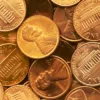The U.S. Supreme Court agreed on Wednesday to hear TikTok’s appeal of a law that could force the Chinese-owned platform to either sell or shut down.
The top court scheduled oral arguments for January 10, just nine days before TikTok could face a ban unless its parent company, ByteDance, divests from the app.
The law, signed by President Joe Biden in April, would block TikTok from U.S. app stores and web hosting services unless ByteDance sells its stake by January 19.
TikTok argues that the law, known as the Protecting Americans from Foreign Adversary Controlled Applications Act, violates its First Amendment free speech rights. In its filing, TikTok stated, “Congress has enacted a massive and unprecedented speech restriction.”
The company warned that if the law takes effect, it would “shutter one of America’s most popular speech platforms” just before a presidential inauguration, silencing “the speech of applicants and the many Americans who use the platform to communicate about politics, commerce, arts, and other matters of public concern.”
TikTok also highlighted the financial harm to itself and countless small businesses reliant on the platform, claiming that the law would cause “substantial and unrecoverable monetary and competitive harms.”
A TikTok spokesperson expressed satisfaction with the Supreme Court’s decision, stating, “We believe the Court will find the TikTok ban unconstitutional so the over 170 million Americans on our platform can continue to exercise their free speech rights.”
The potential ban could escalate tensions in U.S.-China relations, especially as Donald Trump prepares to assume office on January 20. Trump recently expressed a “warm spot” for TikTok and indicated that his administration would review the potential ban.
Trump has emerged as an unlikely ally for TikTok, amid concerns that such a ban could disproportionately benefit Meta, the parent company of Facebook, which has faced conservative criticism for allegedly suppressing right-wing content. This marks a reversal from Trump’s first term, when he attempted to ban TikTok over similar national security concerns.
The U.S. government has raised alarms that TikTok allows Beijing to collect user data and potentially spy on American citizens. It also claims that TikTok is a tool for spreading propaganda, a charge that both China and ByteDance have consistently denied.
Earlier this month, a U.S. appeals court panel upheld the law, agreeing that divesting from Chinese ownership is essential to safeguard national security.
AFP, along with other fact-checking organizations, is paid by TikTok in several countries to verify videos that could potentially spread misinformation.
AFP


